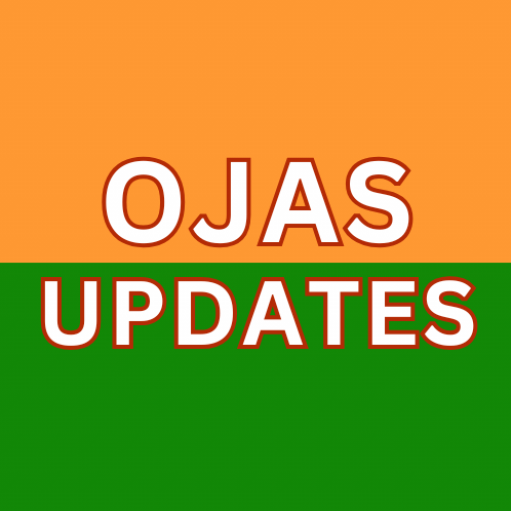In a recent development that has sparked serious discussion among lakhs of central government employees, the Government of India has issued a written reply in Parliament regarding the merger of Dearness Allowance (DA) into basic salary. This clarification comes at a time when employees were expecting good news related to salary restructuring under the 7th Pay Commission.
Instead of approving the merger, the government’s written response has dealt a major blow to employee expectations. Here’s everything you need to know about what was said, what it means for your salary, and what could happen next.
🔷 What is DA Merger and Why is It Important?
Dearness Allowance (DA) is a cost of living adjustment allowance paid to central and state government employees, public sector employees, and pensioners. It is revised twice a year — in January and July — based on the All India Consumer Price Index (AICPI).
The merger of DA into basic salary is significant for these reasons:
- It increases the basic pay, which leads to a rise in other allowances (HRA, TA, etc.)
- It boosts retirement benefits, like gratuity and pension
- It directly impacts the take-home salary and post-retirement income
Historically, whenever DA crosses a certain threshold (usually 50%), the demand for its merger with the basic pay intensifies.
🔶 Current Status of DA in 2025
As of mid-2025, the DA has crossed the 50% mark for central government employees, triggering hopes that the government may consider merging DA with basic salary, as was done during the 6th Pay Commission.
However, the Finance Ministry’s written reply in Parliament has now made it clear that there is no such proposal under consideration.
🔷 Government’s Written Reply – What Was Said?
During a session in Parliament, a question was raised about whether the government planned to merge the current DA with the basic salary for central employees under the 7th CPC.
The government, in its official written reply, stated:
“There is currently no proposal to merge the dearness allowance with basic pay of central government employees under the 7th Pay Commission. The existing mechanism of DA revision will continue as per the recommendations of the commission.”
This one-line statement, though brief, has disappointed a large section of government workers who were anticipating a positive change in their salary structure.
🔶 Why Employees Expected the DA Merger?
There are a few reasons why employees were hopeful:
- DA Crossed 50% – Traditionally, 50% DA triggers reconsideration for merger
- Past Precedent – In 2004, when DA crossed 50%, it was merged with basic salary
- Rising Inflation – The current economic conditions have led to increased household expenses
- Upcoming Pay Commission Speculation – Many hoped this move could lead to a push for the 8th Pay Commission
🔷 Impact of No DA Merger on Employees
The government’s stance means that:
- Basic pay will remain unchanged
- Only DA will continue to increase as per AICPI-based formula
- Allowances that depend on basic pay will not see any rise
- Retirement benefits like pension and gratuity remain unaffected
- Hopes for a revised pay matrix are now delayed, at least until a future pay commission
🔶 7th Pay Commission Structure: A Quick Recap
The 7th Central Pay Commission (CPC) was implemented in 2016, introducing the pay matrix system and removing grade pay. It offered a substantial increase in salaries across all levels.
Key Features:
- Minimum basic salary: ₹18,000
- Maximum basic pay: ₹2,50,000
- DA revision twice yearly
- No automatic pay revision like earlier pay commissions
Since 2016, DA has been increasing steadily, now reaching 50% of basic pay, prompting expectations of a merger.
🔷 What Could Happen Next?
Though the government has currently rejected the proposal, here are possible scenarios in the future:
- DA May Continue to Rise:
- DA hikes are likely to continue bi-annually
- May touch 60% by early 2026 if inflation remains high
- 8th Pay Commission Could Be Proposed:
- Employee unions may now push harder for the formation of the 8th CPC
- The government has not announced any such commission yet
- Special Relief Packages:
- As an alternative, the government may announce one-time bonuses or allowances in upcoming budgets
- Protests and Representation by Unions:
- Employees’ associations and federations may submit fresh memorandums to reconsider the decision
🔶 What Employee Unions Are Saying
Various government employee associations have expressed disappointment over the government’s reply. They argue that:
- The merger is long overdue, considering inflation and cost of living
- Lack of merger reduces the real value of employee compensation
- Many state governments have better DA implementation than the centre
- Central government employees feel neglected despite essential services
They are planning to organize meetings and protests, and write to the Finance Ministry for reconsideration.
🔷 What Employees Can Do Now
While there may not be an immediate change, employees should:
- Track DA revisions regularly (January and July updates)
- Stay updated on 8th Pay Commission-related news
- Consult with associations or unions for collective action
- Make personal financial planning with the current pay structure in mind
- Explore income tax benefits and salary restructuring options
✅ Conclusion: Disappointment, But Not the End
The 7th Pay Commission DA Merger debate has once again highlighted the concerns of India’s central government employees. While the government’s written reply dashes hopes for a salary hike through DA merger, the matter is far from over.
Employee unions are expected to raise the issue further. If inflation continues to rise and DA touches 60–70%, pressure may mount on the government to act.
For now, employees will need to rely on regular DA hikes, even though that may not significantly increase their gross salary or pension contributions.
Stay informed. Stay united. Change may come with collective voice and economic necessity.

